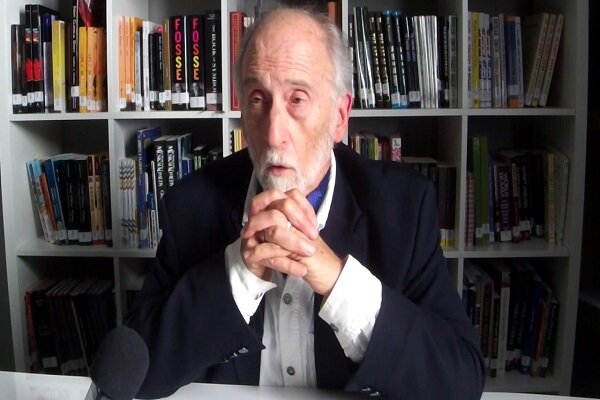By Mohammad Mazhari
TEHRAN – Pointing to the role of some regional actors in West Asia to hinder a revival the 2015 Iran nuclear deal, an American academic and former advisor to the White House on Russian affairs believes that engaging Iran will serve the interests of the United States in West Asia.
“Engaging with Iran is really addressing America’s interest in the Greater Middle East (West Asia),” John Colarusso tells the Tehran Times.
But new U.S. President Joe Biden must also work with “a range of other actors, such as Saudi Arabia and Israel,” according to Colarusso.
Saudi Arabia had said before that the Persian Gulf states must be consulted if the U.S. is seeking to revitalize the nuclear agreement with Iran, claiming it is the only path towards a sustainable agreement.
Joe Biden as the 46th president of the United States has signaled he will return his country to the nuclear pact with Iran and that he still backed the deal negotiated under Barack Obama from which Donald Trump withdrew in 2018.
The nuclear pact, officially known as the Joint Comprehensive Plan of Action (JCPOA), was signed when Biden was serving as vice president in the Barack Obama administration.
Iran is mulling whether to participate in an informal diplomatic meeting planned by European Union foreign policy chief Josep Borrell, who is the chairman of the Joint Commission of the JCPOA.
Colarusso, a professor of languages and linguistics and anthropology at department of anthropology at McMaster University, argues that Biden is dealing with a series of serious issues, including domestic problems that are hindering his efforts to engage Iran.
“These hidden multilateral aspects complicate such engagement, but at the same time makes it worthwhile,” the American professor emphasizes.
The following is the text of the interview:
Q: It was the U.S. that withdrew from the nuclear deal and imposed sanctions on Iran. In view of this fact, why is Biden moving too slowly to revive the JCPOA?
A: I think that there are three main issues delaying President Biden’s engagement with Iran.
The first is the array of domestic crises that he must address.
The second is the condition that the Trump administration left the State Department in. Staffing issues must be addressed by the new Secretary, Anthony Blinken.
The third is the issue of the co-signatory nations. These will want assurances of some sort that the U.S. will not withdraw in the future. Such future matters are difficult to insure, falling as they eventually will under the umbrella of a succeeding administration. I would imagine that such preliminary talks are delicate.
Q: How could Biden repair the U.S. reputation damaged by Trump?
A: The President must re-engage in multilateral forums, including the JCPOA. Some engagement elsewhere has already begun, as with the Paris accord and the WHO.
He might also consider making some moral gestures toward crucial nations, such as those associated with the JCPOA. The simplest and most pressing would be lifting those sanctions that adversely affect how Iran can cope with Covid-19. A moral level of engagement can act as a moderating force on parallel strategic and political discourse - if handled properly. A moral gesture can also provide a backdrop of trust on a small, initial scale against which further talks may unfold.
Q: What are the main challenges facing Biden?
A: Domestically he is faced with the pandemic, a damaged economy, difficult and changeable climate conditions, a potentially uncooperative opposition, and a lack of trust on the international stage.
In addition, there are layers of Trump appointees, many of whom are incompetent or grossly biased, that have to be removed from office so that the U.S. government can function properly. With Iran, he must pursue matters directly linked to nuclear technology and inspection but also do so with a range of other actors, such as Saudi Arabia and Israel, among others.
Engaging with Iran is really addressing America’s interest in the Greater Middle East (West Asia). These hidden multilateral aspects complicate such engagement, but at the same time make it worthwhile.
Q: Why have the European countries failed to confront U.S. unilateral sanctions on Iran?
A: They will surely raise this issue but in a manner that will not attract media attention. Such discretion will allow the U.S. to correct the errors of the Trump presidency. The JCPOA nations must reach unanimity. This may take some months. Iran’s participation in this renewed process may carry more weight after its elections.


No comments:
Post a Comment